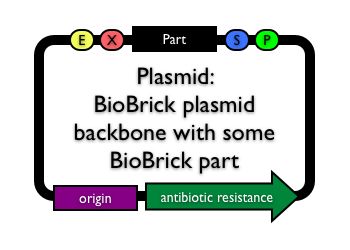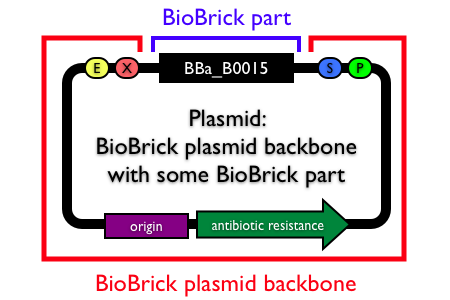Help:Plasmid backbones
|
Plasmids are circular, double-stranded DNA molecules typically containing a few thousand base pairs that replicate within the cell independently of the chromosomal DNA. Plasmid DNA is easily purified from cells, manipulated using common lab techniques and incorporated into cells. Most BioBrick parts in the Registry are maintained and propagated on plasmids. Thus, construction of BioBrick parts, devices and systems usually requires working with plasmids. Note: In the Registry, plasmids are made up of two distinct components:
Many BioBrick parts in the Registry are maintained on more than one plasmid backbone! | |
| |


